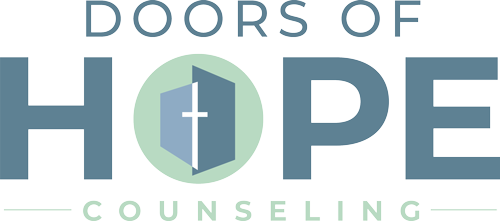By Kelsey Bartrum, Counselor in Training
Have you ever said “yes” when you really wanted to say “no”? Maybe you agreed to help a friend even though you were already exhausted—or stayed silent to avoid conflict, even when something didn’t sit right with you. If so, you’re not alone. Setting boundaries can feel uncomfortable, especially if you’re used to putting the needs of others ahead of your own. For many people, advocating for set limits brings a wave of guilt, fear, or self-doubt. “Will they be mad at me?” or “Am I being selfish?”
But here’s the truth: healthy boundaries are not selfish—they’re necessary. They help protect your energy, support your mental health, and foster more authentic relationships. And with practice, you can learn to set boundaries without carrying the weight of guilt.
Most of us aren’t taught how to set boundaries—we’re taught how to please, accommodate, and keep the peace. If you grew up in an environment where your needs were dismissed or where love was conditional, it may feel unfamiliar—or even threatening—to stand up for yourself. You might associate boundaries with conflict, rejection, or being “difficult.” But the discomfort doesn’t mean you’re doing something wrong. It just means you’re doing something new.
Guilt is a natural emotional response—but sometimes, it’s misplaced. Here are a few common reasons you might feel guilty when setting boundaries:
-
· Fear of disappointing others
-
· Belief that your worth comes from being “helpful”
-
· Confusing self-care with selfishness
-
· Worry that saying no will lead to rejection or conflict
This guilt doesn’t mean your boundary is wrong—it just means you’re challenging old conditioning. Boundaries don’t shut people out—they clarify where you end and someone else begins. Healthy boundaries:
-
· Protect your time, energy, and mental health
-
· Allow you to show up more fully and authentically in relationships
-
· Create mutual respect and clearer communication
-
· Prevent resentment and burnout
It’s important to remember that when you set a boundary, you’re not pushing someone away—you’re taking care of yourself and your relationship.
If boundary-setting feels overwhelming or triggering—especially in relationships involving trauma, codependency, or emotional abuse—you’re not alone. These patterns run deep and can take time to unlearn. The good news is that healthy boundaries can be learned, and you don’t have to figure it out on your own. We are here for you at Doors of Hope and have an amazing team that can help you explore the roots of your guilt, rebuild your self-worth, and develop boundaries that honor your values.
If you’re ready to stop living on autopilot, people-pleasing, or overextending yourself, therapy can be a powerful step toward reclaiming your time, energy, and voice. You don’t have to earn rest. You don’t have to explain your limits. You deserve peace.

